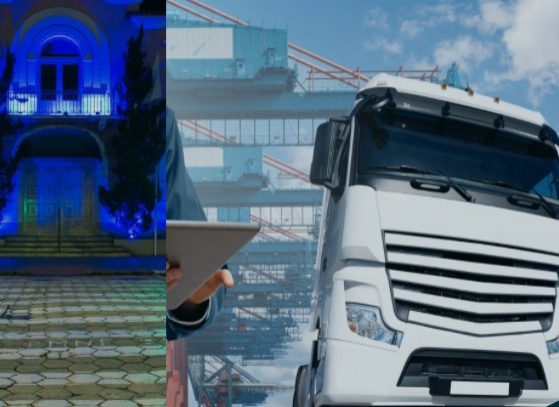News
Declaration on situation on Polish-Ucrainian border
2023 11 24
The Lithuanian National Association of Freight Forwarders and Logistics LINEKA (hereinafter - the Association) unites the largest companies providing international cargo forwarding and logistics services in Lithuania. By actively representing the interests of the members of the Association, it maintains a dialogue between the government and business institutions, seeks to create the most favorable conditions for its members to independently expand and develop all types of logistics and forwarding services, promotes the development of the market economy based on the principle of free and fair competition and cooperation between business partners.
In response to the current critical situation on the Polish-Ukrainian border, where the protest of the Polish carriers continues for more than two weeks, the Association responsibly declares that it does not support the position of the representatives of the carriers in Central Europe, including Lithuania, dated on the 18 November 2023, requiring to terminate the European Union transport agreement, which, according to the representatives of the carriers, caused unfair competition from the side of the carriers of war-torn Ukraine.
One of the greatest achievements of the European Union is the internal market. The free movement of goods and persons is an important aspect of international trade, economic growth and social development, promoting cooperation between countries and regions and contributing to the development of economic and cultural diversity. From a legal point of view, the principle of free movement of goods is an element that is still based on the creation and development of the internal market. The content of this principle is determined in (1) Articles 34-36 of the Treaty on the Functioning of the European Union (applicable to goods outside the EU-level harmonized area) and (2) in the secondary law of the European Union: the Goods Package and EU harmonization legislation (directives or regulations) defining the principle of free movement of goods for specific goods.
According to the Association, the intention of the protesting transporters to re-issue EU Permits to Ukrainian trucks, which the Bloc abolished after the Russian attack on Ukraine, directly violates the international agreements concluded between the European Union and Ukraine and contradicts to the main principles of the European Union - it hinders the normal functioning of the internal market of the European Union.
The goal of the activities of the forwarders is to ensure efficient and smooth operation of transportation (supply) chains. In the context of the unstable geopolitical situation and military actions, the artificial disruption of extremely important transport links by individual Polish carriers provides much damage not only to Ukrainian exporters and importers, but primarily to Poland itself and the entire European Union.
The aggressive methods of actions chosen by the Polish transporters, do not invite to a dialogue, with the right people with whom the purpose of negotiation is aimed and will obviously not bring the result allegedly sought by the protest - equal business environment in the transport sector.
Now, the protesters have already caused a humanitarian catastrophe on the territory of Poland, where thousands of vehicles are stopped at the entrance to Ukraine without access to everyday amenities.
However, the long-term result of the protest will course the disruption of product delivery deadlines, the violation of contracts with partners, the spoilage of limited-life food products and, as a result, direct financial and reputational losses for the entire European transport sector.
The Association urges on Polish carriers to act responsibly and quit the actions of protest, promote dialogue not with Ukrainian but with Polish state institutions and seek constructive solutions to avoid further problems and reversible negative consequences. By working together, we can find solutions that would benefit all participants in the transport market and allow supply chains to function normally again.
